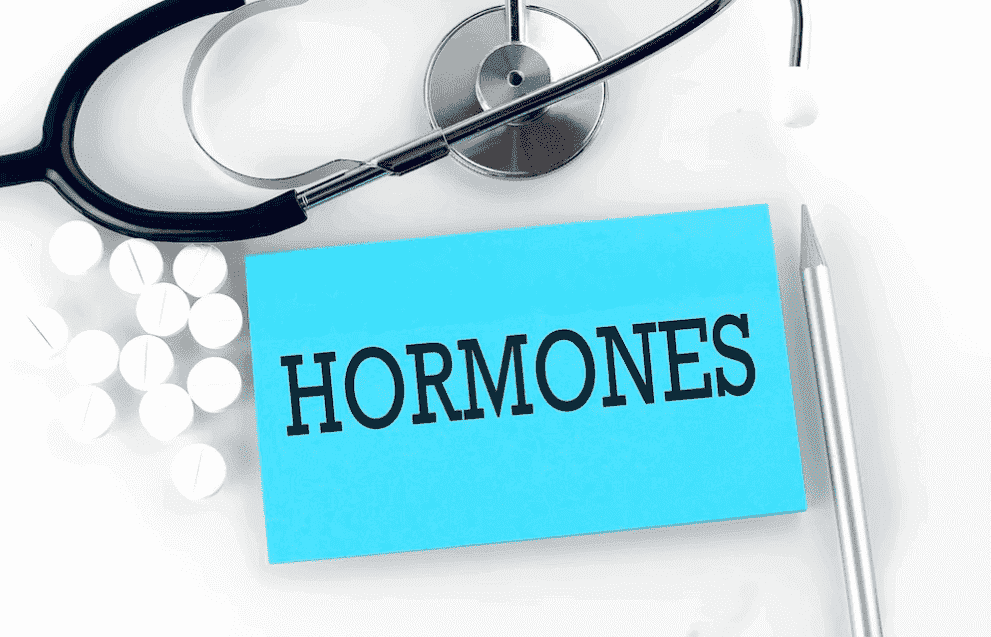The Orchestra of Hormones – Conducting Your Wellbeing
Imagine your body as a bustling symphony orchestra, where each instrument (hormone) plays a crucial role in creating harmonious music (optimal health). When any instrument gets out of tune (hormonal imbalance), the entire melody suffers, leading to a cacophony of symptoms that can significantly impact your physical and mental well-being.
So, what exactly are hormones? These chemical messengers, produced by your endocrine system, regulate a vast array of bodily functions, from metabolism and mood to growth and reproduction. A delicate balance is key to their functionality, and even slight fluctuations can create significant disruptions.
Unmasking the Hidden Maestro – Common Hormonal Imbalances
Understanding the different hormones and their functions is crucial to identifying potential imbalances. Let’s explore some key players:
- Estrogen and Progesterone: These crucial female sex hormones orchestrate the menstrual cycle, fertility, and bone health. Imbalances can manifest as irregular periods, mood swings, hot flashes, and weight changes.
- Testosterone: Primarily known as the male sex hormone, testosterone also plays a vital role in female health, influencing energy levels, muscle mass, and libido. Deficiencies can lead to fatigue, low sex drive, and bone loss.
- Thyroid Hormones: These powerhouse hormones regulate metabolism, body temperature, and heart rate. Imbalanced thyroid function can trigger weight fluctuations, fatigue, anxiety, and even hair loss.
- Insulin: This pancreatic hormone controls blood sugar levels. Insulin resistance or deficiency can result in diabetes, characterized by fatigue, excessive thirst, and frequent urination.
- Cortisol: This stress hormone, though essential for fight-or-flight response, can become problematic when chronically elevated, contributing to anxiety, sleep disturbances, and weakened immunity.
These are just a few examples, and imbalances can affect multiple hormones simultaneously.
Symphony of Symptoms – Recognizing the Signs of Hormonal Dissonance
The beauty of the body lies in its ability to communicate imbalances through various signals. While symptoms can vary depending on the hormone affected, some common indicators include:
- Weight fluctuations: Unexplained weight gain or difficulty losing weight can be a clue to thyroid or insulin imbalances.
- Menstrual irregularities: Frequent or irregular periods, heavy bleeding, and premenstrual syndrome (PMS) can point to estrogen and progesterone imbalances.
- Mood swings: Increased anxiety, depression, and irritability can be linked to imbalances in cortisol, estrogen, or thyroid hormones.
- Fatigue and low energy: Feeling constantly drained can be a symptom of thyroid dysfunction, adrenal fatigue, or sex hormone imbalances.
- Sleep disturbances: Difficulty falling asleep, staying asleep, or experiencing restless nights can be triggered by cortisol spikes or imbalanced melatonin production.
- Skin changes: Acne, hair loss, or dry skin can be indications of hormonal shifts, particularly in individuals with conditions like polycystic ovary syndrome (PCOS).
- Sexual dysfunction: Decreased libido, erectile dysfunction, or vaginal dryness can be linked to testosterone or estrogen imbalances.
Seeking Harmony – Diagnostic Tools and Treatment Options
If you suspect a hormonal imbalance, seeking professional medical guidance is crucial. Doctors can conduct various tests, including bloodwork, urine tests, and imaging scans, to identify the specific hormonal imbalances affecting you.
Once diagnosed, personalized treatment plans can be tailored to restore your hormonal symphony. These options include:
- Hormone replacement therapy (HRT): This therapy involves supplementing deficient hormones, often used for conditions like menopause or hypothyroidism.
- Birth control pills and medications: These can regulate menstrual cycles and hormonal fluctuations, often managing symptoms associated with PCOS or endometriosis.
- Dietary and lifestyle changes: Maintaining a healthy weight, regular exercise, stress management techniques, and a balanced diet rich in fruits, vegetables, and whole grains can significantly improve hormonal balance.
- Alternative therapies: Certain supplements, acupuncture, and herbal remedies, under the guidance of a qualified practitioner, can support hormonal regulation in some cases.
Beyond Treatment – Embracing Harmony in Your Daily Life
Remember, achieving and maintaining hormonal balance is a journey, not a destination. While medical interventions can play a vital role, incorporating certain lifestyle habits into your daily routine can significantly support your hormonal health:
- Prioritize sleep: Aim for 7-8 hours of quality sleep each night to regulate melatonin production and cortisol levels.
- Manage stress: Practice stress-reduction techniques like yoga, meditation, or deep breathing to avoid chronic cortisol spikes.
- Nourish your body: Choose a balanced diet rich in fruits, vegetables, whole grains, and lean protein to provide essential nutrients for optimal hormone function.


